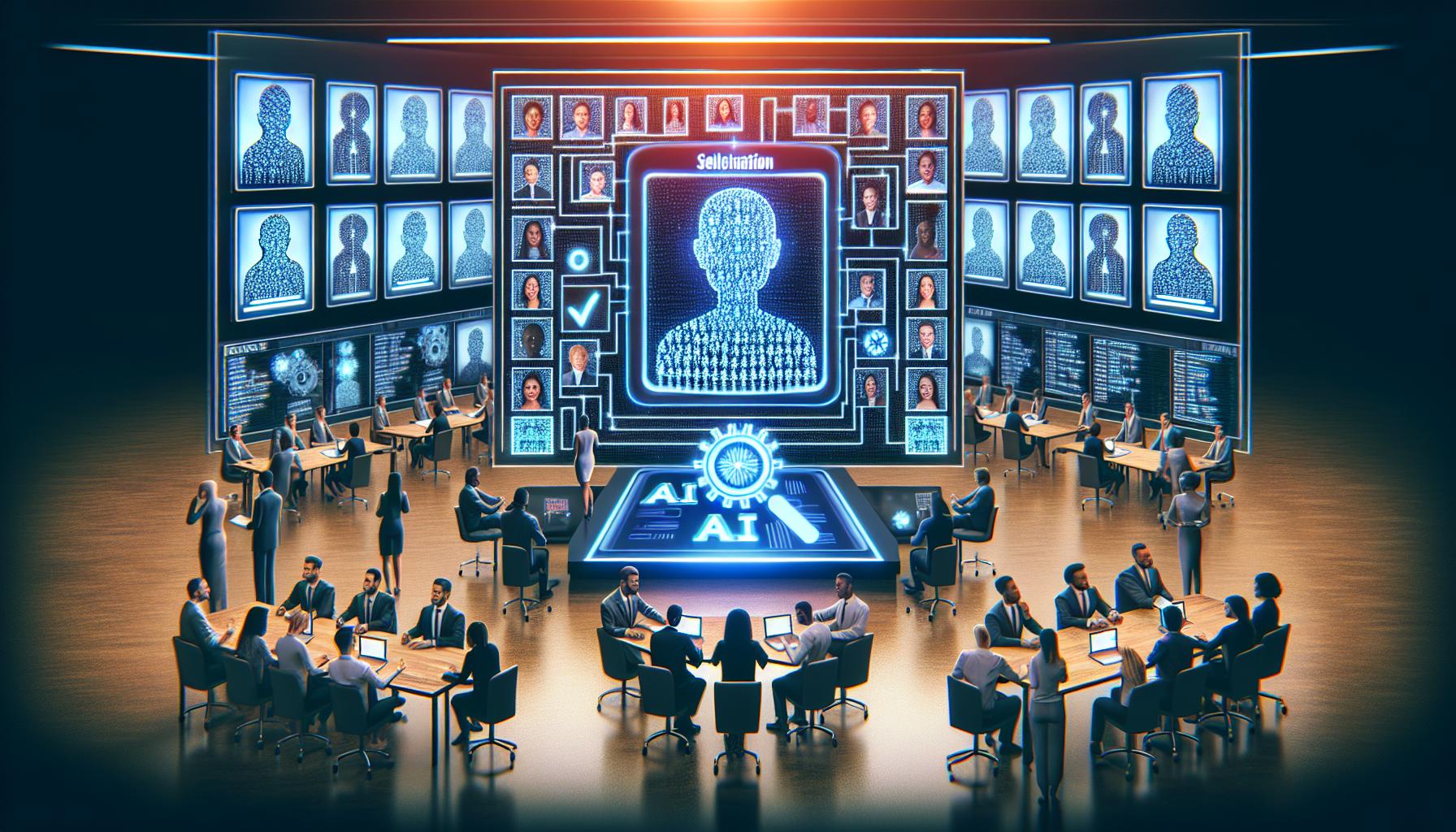Ensuring Diversity and Inclusion: AI in Equitable Candidate Evaluation

Introduction
In an ever-evolving job market, the drive for diversity and inclusion in hiring practices has never been more critical. Traditional hiring methods have often been plagued with unconscious biases. These biases can negatively impact not just the candidate pool but ultimately the success of an organization. Artificial Intelligence (AI) offers a groundbreaking avenue to enhance diversity and inclusion in candidate evaluation. By stripping away subjective biases, AI has the potential to promote a fairer, more inclusive hiring process, which is beneficial for both the candidates and the organization.
Traditional Biases in Human Evaluation
Human evaluators, despite their best intentions, often carry unconscious biases shaped by their experiences, culture, and environment. These biases can be based on various factors such as gender, race, age, or socio-economic background. For instance, certain names or educational institutions might prompt biased assumptions about a candidate's capabilities or fit for the role. This unconscious bias can result in the unfair exclusion of highly qualified candidates.
Moreover, traditional interviews often put a candidate's ability to charm interviewers above actual job-related skills. This can disadvantage candidates who may not be as extroverted or who come from different cultural backgrounds where self-presentation styles vary significantly.
How AI Algorithms Can Mitigate Bias
AI algorithms can analyze vast amounts of data without the inherent biases humans possess. By focusing strictly on skills, experience, and fit for the job, AI can help ensure a fair evaluation process. Here are some ways AI can mitigate traditional biases:
- Blind Recruitment: AI can be programmed to anonymize candidate details, such as names, gender, and age, allowing evaluators to focus solely on qualifications and experience.
- Skill-Based Assessments: AI-driven tools can objectively assess candidates' skills through various tests and simulations, eliminating the influence of subjective judgments.
- Consistent Evaluation: AI can ensure that all candidates are evaluated against the same criteria and standards, thus reducing variability and personal bias in the assessment process.
Case Studies and Examples
Several companies have successfully integrated AI into their hiring processes to promote diversity and inclusion:
Unilever:
Unilever employs an AI-based system for initial candidate assessment. Applicants play neuroscience-based games that evaluate various cognitive, social, and emotional traits. Their responses are then analyzed by AI to determine their potential fit, completely avoiding traditional resumes and biases associated with them. As a result, Unilever has reported a significant increase in the diversity of its hired workforce.
Hilton:
Hilton has used AI-driven video interviewing platforms to hire employees globally. These platforms assess candidates' responses and body language using algorithms, reducing dependence on human interviewers who may have biases. Since its implementation, Hilton has noticed a more diverse set of hires, especially in global markets.
Ethical Considerations
While AI holds the promise of making the hiring process fairer, ethical considerations remain critical. One significant concern is the data used to train AI algorithms. If the training data is biased, the AI can perpetuate these biases. Therefore, it is crucial to use diverse and representative data sets.
Transparency in AI decision-making is another critical factor. Employers and candidates should understand the criteria AI uses to evaluate applicants. Regular audits of AI systems should be conducted to ensure they are adhering to ethical standards and maintaining fairness.
Potential for a Fairer Hiring Process
Implementing AI in the hiring process can help create a more equitable and inclusive workforce. By focusing on candidates' objective qualifications rather than subjective impressions, AI can level the playing field.
Diverse and inclusive teams have been proven to drive innovation and improve business outcomes. A fair hiring process ensures that the best talent, regardless of background, gets the opportunity to contribute. This not only benefits the candidates but also strengthens the organization as a whole.
Conclusion
AI offers a promising solution to traditional biases in candidate evaluation, promoting diversity and inclusion in the workplace. By mitigating human biases, AI can help ensure that hiring decisions are based on merit and fit rather than unconscious prejudices. However, the ethical implementation of AI is critical to realizing its full potential. By addressing these ethical considerations, businesses can create a fairer and more inclusive hiring process, ultimately benefiting from a diverse and talented workforce.




